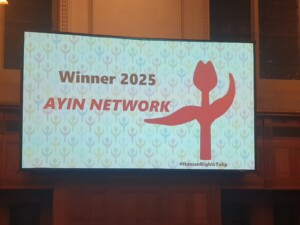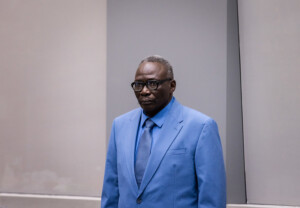EU Council: Political transition ‘historic opportunity’ for Sudan
The Council of the European Union has adopted conclusions on Sudan, “recognising the historic opportunity that Sudan’s political transition offers to work towards a peaceful, democratic, and prosperous country”.
 File photo: EU
File photo: EU
The Council of the European Union has adopted conclusions on Sudan, “recognising the historic opportunity that Sudan’s political transition offers to work towards a peaceful, democratic, and prosperous country”.
In a press statement yesterday, the Council points out: “The conclusions highlight that Sudan’s success remains crucial for stability in the Horn of Africa and the wider region and reaffirm EU’s commitment, as a key partner, to accompanying Sudan on its political, economic and social reform path, in order to make the transition to democracy a success”.
The Council also highlights that “in order to guarantee the long-term stability of the country, the transition should include all elements of society, notably women, youth and people of regions particularly affected by conflict and marginalisation”. The importance of civil society is also reiterated.
‘Only an effective civilian-led government with real decision-making authority will gain the confidence of the Sudanese people and lay the foundations for meaningful reforms…’ – Council of the European Union
In this regard, the Council recalls that “only an effective civilian-led government with real decision-making authority will gain the confidence of the Sudanese people and lay the foundations for meaningful reforms. The EU remains ready to assist a Sudanese-led peace process in coordination with regional partners, especially the African Union.”
While acknowledging that “substantial macro-economic reforms are needed to revitalise the Sudanese economy and set it on a course towards inclusive and sustainable growth”, the Council notes that “the EU stands ready to support the transitional government’s plans in this regard”.
While welcoming the recent steps taken by the transitional government, the conclusions state that “the EU remains concerned by the deteriorating humanitarian situation, which has been aggravated by a high number of refugees and internally displaced persons”. The EU calls upon the Sudanese authorities “to remove the remaining bureaucratic obstacles to the work of humanitarian and development actors”.
€466 million
In October, Sudan’s Prime Minister Abdallah Hamdok and Foreign Minister Asmaa Abdallah received a high-level delegation from the European Union in Khartoum led by Deputy Secretary General of the European Union External Action Service, Jean-Christophe Belliard, the EU Director General for International Cooperation and Development, Koen Doens, and the EU Special Representative for the Horn of Africa, Alexander Rondos.
They discussed cooperation with Sudan, and pledged a total of €466 million in support grants to assist the with the transition in the country.
Also in October, the new Head of Delegation of the European Union to Sudan, Robert van den Dool, handed his credentials to Lt Gen Abdelfattah El Burhan, President of the Sovereign Council, in Khartoum.
Brussels
Last month, PM Hamdok travelled to Brussels, accompanied by two of his Ministers and other officials and met with several EU Commissioners to discuss his government’s plans with representatives of the Sudanese community in Belgium. He briefed EU Ministers of Foreign Affairs on the political developments in Sudan, the ongoing efforts to achieve a comprehensive peace, normalisation of relations with the international community, and the government’s efforts to address economic issues.
During his meeting with Jutta Urpilainen, European Commissioner for International Cooperation and Development, Hamdok praised the EU’s supportive stance towards Sudan.
The Prime Minister affirmed the commitment of his government to implement the goals of the December Revolution. They are reflected in the programme of the three-year transitional period. Reaching a comprehensive and just peace and improving the economic situation are the main priorities.
Radio Dabanga’s editorial independence means that we can continue to provide factual updates about political developments to Sudanese and international actors, educate people about how to avoid outbreaks of infectious diseases, and provide a window to the world for those in all corners of Sudan. Support Radio Dabanga for as little as €2.50, the equivalent of a cup of coffee.












 and then
and then